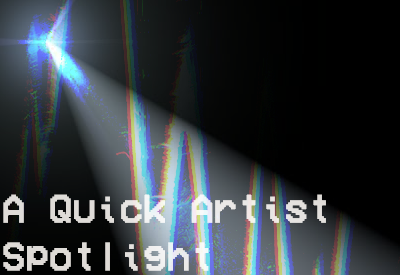By Rajin

As you can see by the date of my last posted article, we decided to take last year off. This has made it difficult for me to decide on how to approach my first posted piece in 13 or 14 months, despite the fact that I’ve got a litany of unfinished works in progress. I figured that something fairly short and sweet would be the easiest reintroduction.
I would say that over the course of our hiatus, the underground hip hop scene that I spent 2017 and 2018 raving about has effectively come and gone. It’s no longer the exciting step in the evolution of hip hop that I once saw it as. The entire lane got watered down by wannabe rappers flooding Bandcamp with low-effort projects. Verses were clearly one-take freestyles over lazy production. The rap styles and ears for beats of actual great artists (think Roc Marciano/Planet Asia/Hus Kingpin/Westside Gunn) were bitten and sucked dry by parasites with no true creative vision, creating cheap knock-offs. Cover art went from eye-catching and unique to the same old Google image searches of mafia movie characters with paint splatters on their faces and/or black strips over their eyes, with massive parental advisory logos plastered on. Rappers press 25 copies of cassette tapes, CDs, and 12” vinyl (not even LPs) and sell them under the guise of rare art, charging $100 for a 15 minute project. It’s been a quick but very painful and unceremonious death of a scene that was once luxurious and mysterious.
Outside of Brown Bag Money/Gold Era-affiliated artists, Rome Streetz, Eto, Rigz, and Ty Farris (who I’m not sure I even consider part of the same scene honestly), I can’t really say I listen to very many underground artists who have risen to prominence in recent years often at all anymore. That said, there have been a few more I’ve found recently who care more about creating good music than they do making money off rich white kids who want to flaunt their “esoteric” music taste on Instagram. So rather than continue exposing myself as a hypocrite and bitching about music on the internet, I’d rather shine what miniscule light we may have on these artists. Absolutely none of them are artists that you haven’t heard of, but I really believe in them and I haven’t had the chance to talk about them on this platform yet.
I would like to start off with Ché Noir. I first heard about her about a year and a half ago, but if I recall correctly her projects were limited so I didn’t have much to dig into. What I did hear was decent, but I felt as though there was a bit of potential she had yet to tap into. I believe part of the reason is because of the beats she was rapping over. Being signed to T.C.F. Music Group, she was getting beats from 38 Spesh, who makes good beats but wasn’t supplying her with beats that I personally feel meshed with her style overly well in my opinion. I kept my ear to her though, having a feeling that sooner or later she’d hit the level I felt she could hit. That point came last summer when she released an album with Apollo Brown called As God Intended. That record clicked with me immediately in ways her previous material hadn’t. Ché Noir’s voice perfectly matched the feel of Apollo Brown’s beats. It was very relaxing and hypnotic, almost betraying the fact that what she was rapping about was supremely brutal more often than not. That album ended up being one of my favorites of last year – and she wasn’t done. A few months later, she released an entirely self-produced EP called After 12. She showed a natural inclination for production, making me really hope that in the future she produces a full-length album for herself. I consider Ché to be the best lyricist of the handful of emcees that I am talking about today, personally. Her lyrics are incredibly poetic and thoughtful, adding a level of poignancy to topics that we’ve heard much about. I honestly think this year was just the beginning for her. She seems like she’s hit a consistent stride, and I see her only getting better as time goes on.
Next is Stove God Cooks. Cooks is a little different than the other artists here, because I’ve actually been aware of him for about 5 years or so now. I recall that he signed to Busta Rhymes’ label The Conglomerate Entertainment a while back and showed up on a few mixtape tracks. I was always impressed by him, so I was curious as to why he wasn’t dropping anything. Fast forward to the end of 2019, and out of nowhere he popped up on Roc Marci’s album Marcielago on the standout cut “Puff Daddy.” Not too long afterwards, there was word that Marci was producing his entire debut album, culminating in Reasonable Drought. This record was another one of my favorites from last year. Roc Marci’s beats are typically quite minimal, which only works with a select few artists at this point in time. Stove God is one of those artists. He raps like a force of nature, driving the pulse of the song himself while the beats generally serve more like soundscapes behind him. The song “Crosses” is one of the most breathtaking songs from last year, from the sample down to how bloodthirsty Cooks sounds over it. He’s also got my favorite verse on the huge cypher track “Frank Murphy” off Westside Gunn’s Shady Records album Who Made The Sunshine, setting the track off on a supremely high note. When people rap on beats without drums nowadays, a lot of them get way too loose with the flow to the point where they sound like they’re just talking. Cooks makes sure the music never loses a sense of rhythm, and keeps things engaging at all times. I think of the artists I’m talking about, he’s the one who’s made the biggest impression on listeners, and while I feel like they all deserve equal notoriety, there’s absolutely a reason why people are paying attention to him.
Finally, we come to 7xvethegenius (pronounced Love the Genius). This is somebody who I saw covered on a bigger hip hop site about a year or two ago, but I didn’t get the chance to check out. Recently, she has signed with Conway the Machine to his new label Drumwork Music Group. The first time I had the chance to listen to her properly was when Conway released the deluxe edition of From King To A God, where she featured on the track “Crack In The Nineties.” To say the least, she absolutely bodied the song. Her verse is not only damn near twice as long as the others are, but more consistently passionate and hungry. On that verse, she demonstrated that she knows exactly how to build a verse so that you’re constantly hanging onto everything she’s saying. She doesn’t give you a chance to tune out because she only sounds more urgent as the verse goes on and forces you to pay attention from beginning to end. Not long after that guest appearance, she released her debut single under Drumwork, “Break Soul.” The same thing applied to that song. Structured as essentially one long verse, the track’s intensity continuously increases with her vocals sounding hungrier and hungrier as it progresses. If I had to try to sell her as a talent based off these two tracks, I would say that she is almost like the concept of momentum personified as a rapper. By the end you feel like you’re listening to some of the most important lyrics you’ll hear all day with how convincing she sounds and how commanding her presence is. Before signing to Drumwork, she had released two projects – 7xve is Love and Self 7xve. Admittedly, I haven’t listened to them yet. I am intentionally waiting until I hear what she does under Conway’s guidance before looking at what she did beforehand so I can judge her artistic development with no prior expectations on what I think her first Drumwork album should be. I’m very excited about her though. I genuinely feel like she could be a star if she’s guided and promoted the right way – the raw talent is more than present.
I don’t want to act like a tastemaker or say that nobody else out is bubbling or making good music via exclusion from this piece. My intention here was just to update any readers we may have retained over the past year of inactivity of who’s caught my ear, and to offer my suggestions if for whatever reason any of them haven’t hit your radar. I’ll be watching their careers with interest, because I’ve been super impressed with what I’ve seen of them already. I’m always looking for more artists to listen to, so hopefully I can find more to talk about as I settle back into writing.
